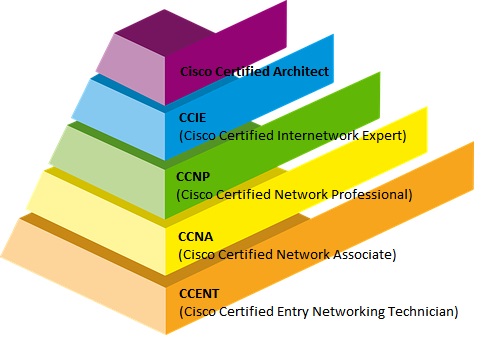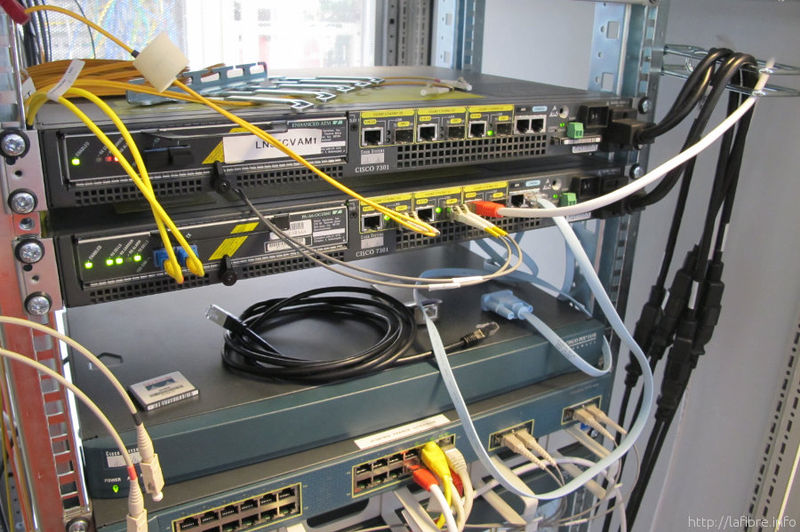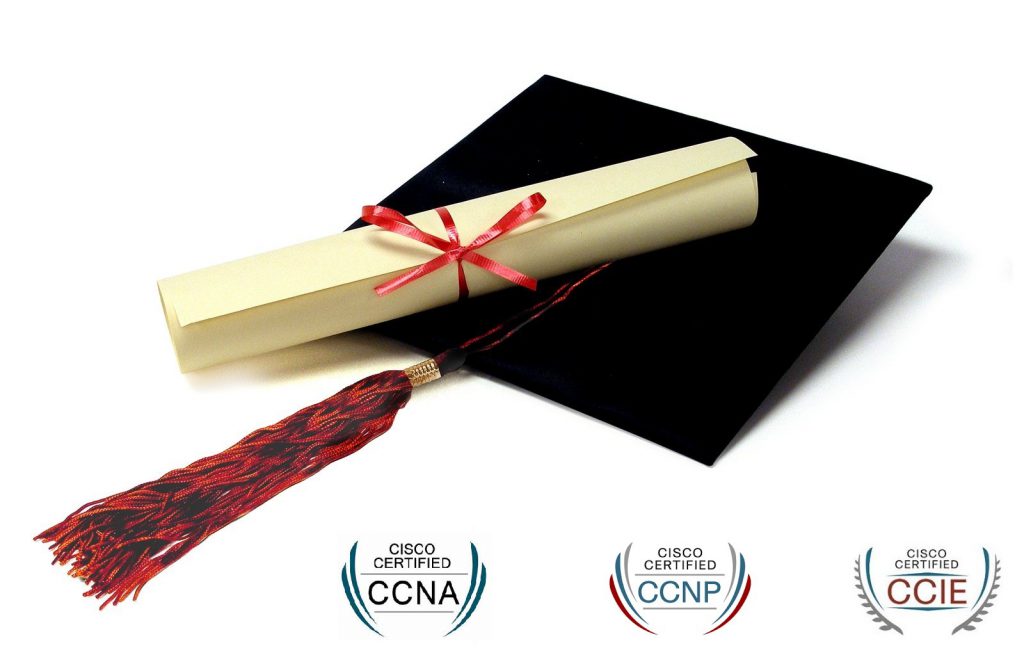Cisco is the worldwide leader in IT and networking world which offers certification exams in following different tracks. Let us have a look at the Cisco Certification Guide and its different tracks below:
- Routing and Switching
- Service Provider
- Collaboration
- Security
- Wireless
- Data Center
- Design
- Cloud
- Industrial
- Cybersecurity Operations
Other than this, Cisco also offers specialists certification exams in different fields such as Operating System Software specialist, Network Programmability Specialist, Internet of Things (IoT) Specialist, Cisco Telepresence (TP) Specialist, Cisco Mobility Specialist and many more.
Cisco certifications have formed the foundation for thousands of successful careers in networking. Whether you’re a beginner or a networking master, a Cisco certification can help build and prove your skills.
Let us take a look at Cisco’s certification program.
Cisco Certification Program
Cisco certifications are ranked as top industry certifications and are recognized all over the world. The Cisco certification program takes you from the beginner to an expert level (shown below), covering a wide range of topics.
- Entry Level
- Associate Level
- Professional Level
- Expert Level
- Architect

Entry Level
Both the CCENT (Cisco Certified Entry Network Technician) and the CCT (Cisco Certified Technician) certifications serve as starting points for individuals interested in starting a career as a networking professional. There is no prerequisite for CCT and CCENT.
Associate Level
Candidates with a CCENT under their belt can move on to CCNA (Cisco Certified Network Associate).
The CCNA involves basic skills in installing, supporting and troubleshooting networks. CCNA has also no prerequisite, candidates can either take CCENT first followed by CCNA or sit the CCNA exam straightaway.
Professional Level
Candidates who have passed CCNA are qualified to take on the Cisco Certified Network Professional (CCNP) certification.
CCNP comprises multiple exams wherein candidates are tested with complex networking knowledge. CCNP certified engineers are able to deploy and troubleshoot LANs and WANs. Following is the breakdown for number of exams in different CCNP tracks:
Number of Exams – 3
- CCDP
- CCNP RS
Number of Exams – 4
- CCNP Cloud
- CCNP Collaboration
- CCNP Data Center
- CCNP Security
- CCNP Service Provider
- CCNP Wireless
There are no CCNP exams for Cisco Cybersecurity Operations and Industrial tracks.
Expert Level
CCIE (Cisco Certified Internetwork Expert) is the most esteemed certification in the IT industry.
For most network professionals, achieving CCIE is a career highlight. However, to obtain a CCIE, a candidate has to pass a written exam followed by an extensive 8 hour practical lab exam that is based on live Cisco equipment.
As per Cisco, less than 3% of all Cisco certified networking professionals achieve CCIE Certification! CCIE certification is admired the world over as a symbol of networking excellence and commitment to continued professional development.
To maintain active CCIE status, CCIEs are required to recertify every 24 months.
Architect level
CCAr (Cisco Certified Architect) is often referred to as the PhD of the Cisco Career Certification program. Cisco offers CCAr under the design track and a valid Cisco CCDE (Cisco Certified Design Expert) certification can act as a prerequisite, along with a thorough understanding of networking infrastructure principle.
Resources and Trainings
Cisco is also dedicated to every candidate’s success and maintains a list of available training and self-study resources such as e-learning, practice exams, learning labs, on each certification web page. So, if you’re looking to start a career in IT and Networking, Cisco certifications program is your saviour!

In case you have any questions or want to share your feedback regarding Cisco or their certifications, you are most welcome and I would love to respond as soon as possible.
Haider Khalid
Latest posts by Haider Khalid (see all)
- 5 Essential Tips for Maintaining Your Vehicle’s Performance - June 20, 2025
- 4 Steps To Manage Your Business More Effectively - June 14, 2025
- The Top 5 Sustainable Practices for Businesses to Implement This Year - June 14, 2025

Hi Haider, interesting article.
So in your opinion, how long would it normally take to go from Entry Level to Expert Level, assuming that the individual keeps moving onto the next stage without any major breaks?
Also, very roughly speaking, how much extra salary would each level of certification bring in percentage terms?
Thanks. Well, it takes you about a good couple of years of time from the entry level to become an expert. And the salary varies from region to region, like when I was working in the Middle East, it was more for Cisco professionals/experts over there and the market is much different over here in the UK. Nevertheless, if you are an expert, you are surely gonna get paid way above average irrespective of your location. Hope that helps 🙂